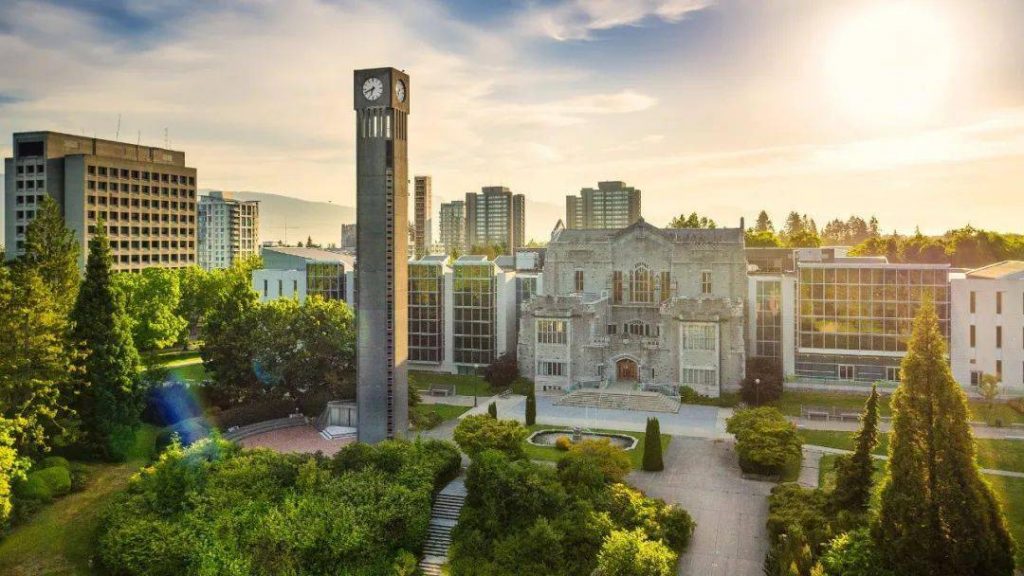
加拿大英属哥伦比亚大学非晶态薄膜的原子建模博士后研究金项目
Postdoctoral Fellowship: Atomistic modeling of amorphous films with exceptionally low mechanical loss
The two four km long Advanced LIGO interferometers in the U.S., the most sensitive gravitational wave detectors in the world, have registered the signals of more than 50 black hole and neutron star mergers. The detection sensitivity is fundamentally limited by the rate at which mechanical vibrations are damped in the highly reflective coatings on fused silica mirrors. The next generation of detectors, including Voyager, Cosmic Explorer, and the Einstein Telescope, require a significant improvement in mechanical loss in the most sensitive (10-1000 Hz) frequency range. Low mechanical loss materials are also urgently needed in many other nanoscale applications, for instance in optomechanical resonators and in quantum information components.
To address this challenge, the LIGO group and the The Stewart Blusson Quantum Matter Institute (SBQMI) at the University of British Columbia are building an integrated design framework to discover new materials with exceptionally low mechanical loss. In support of this effort, we seek a computational scientist with experience in atomistic simulations of condensed matter systems. The successful candidate will join an interdisciplinary team of (astro-)physicists and solid state chemists, and help setting up a closed feedback loop between materials modeling, synthesis, and experimental characterization. The postdoctoral fellow will focus on identifying and characterizing sources of internal friction (two level systems) in amorphous metal oxide films that have been identified as promising candidate materials. Of particular importance will be improving on existing modeling strategies by implementing advanced sampling and emergent machine learning methods.
A PhD in Physics, Chemistry, Materials Science or a related discipline is required. Good oral and written communication skills and the ability to work on a team project are essential. Prior experience with atomistic simulation techniques (DFT, molecular dynamics, etc.) is desired.
Interested candidates can contact Prof. Joerg Rottler (jrottler at physics.ubc.ca) for further details, and should send:
a brief cover letter,
summary of research interests (1 page),
CV with list of publications,
diversity statement, and
the names of three potential referees (preferably in one pdf file) to the same address.
We will consider applications until the position is filled.
This posting is for the UBC Vancouver campus in British Columbia, Canada.
Please refer to reference number NC-55115 during correspondence about this position. Please visit the researcher profile of the supervisor for this position to learn more about their research.
Equity and diversity are essential to academic excellence. An open and diverse community fosters the inclusion of voices that have been underrepresented or discouraged. We encourage applications from members of groups that have been marginalized on any grounds enumerated under the B.C. Human Rights Code, including sex, sexual orientation, gender identity or expression, racialization, disability, political belief, religion, marital or family status, age, and/or status as a First Nation, Metis, Inuit, or Indigenous person.
About UBC
The University of British Columbia is a global centre for research and teaching, consistently ranked among the top 20 public universities in the world. Since 1915, UBC’s entrepreneurial spirit has embraced innovation and challenged the status quo. UBC encourages its students, staff and faculty to challenge convention, lead discovery and explore new ways of learning. At UBC, bold thinking is given a place to develop into ideas that can change the world.
Postdoctoral Fellows at UBC Vancouver
UBC is home to over 900 postdocs spanning all faculties and units across two campuses and a variety of affiliated hospitals, research centres, and sites, providing unparalleled opportunities to learn, discover and contribute in one’s own way. UBC’s Postdoctoral Fellows Office (PDFO) is committed to supporting the lives and career aspirations of our Postdocs, with the goal of enriching their experience at UBC and preparing them for the future. In addition to providing support and advocacy for all postdocs, the PDFO is dedicated to providing professional development opportunities that foster the development of soft skills needed in today’s professional environments, helping them secure future careers in their chosen fields.
About UBC’s Faculty of Science
UBC Science brings together a community of scholars internationally recognized for its commitment to discovery and innovation—in the lab and in the classroom. Our faculty conduct top-tier research in the life, physical, earth and computational sciences, driving insights into sustainability, biodiversity, human health, nanoscience, new materials, probability, artificial intelligence, exoplanets and more. Ranked among the world’s top 40 universities, UBC’s research prowess in environmental science, math, physics, plant and animal science, computer science, geology, oceanography and biology is consistently rated best in Canada by international and national rankings.













